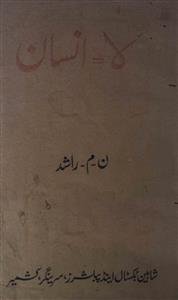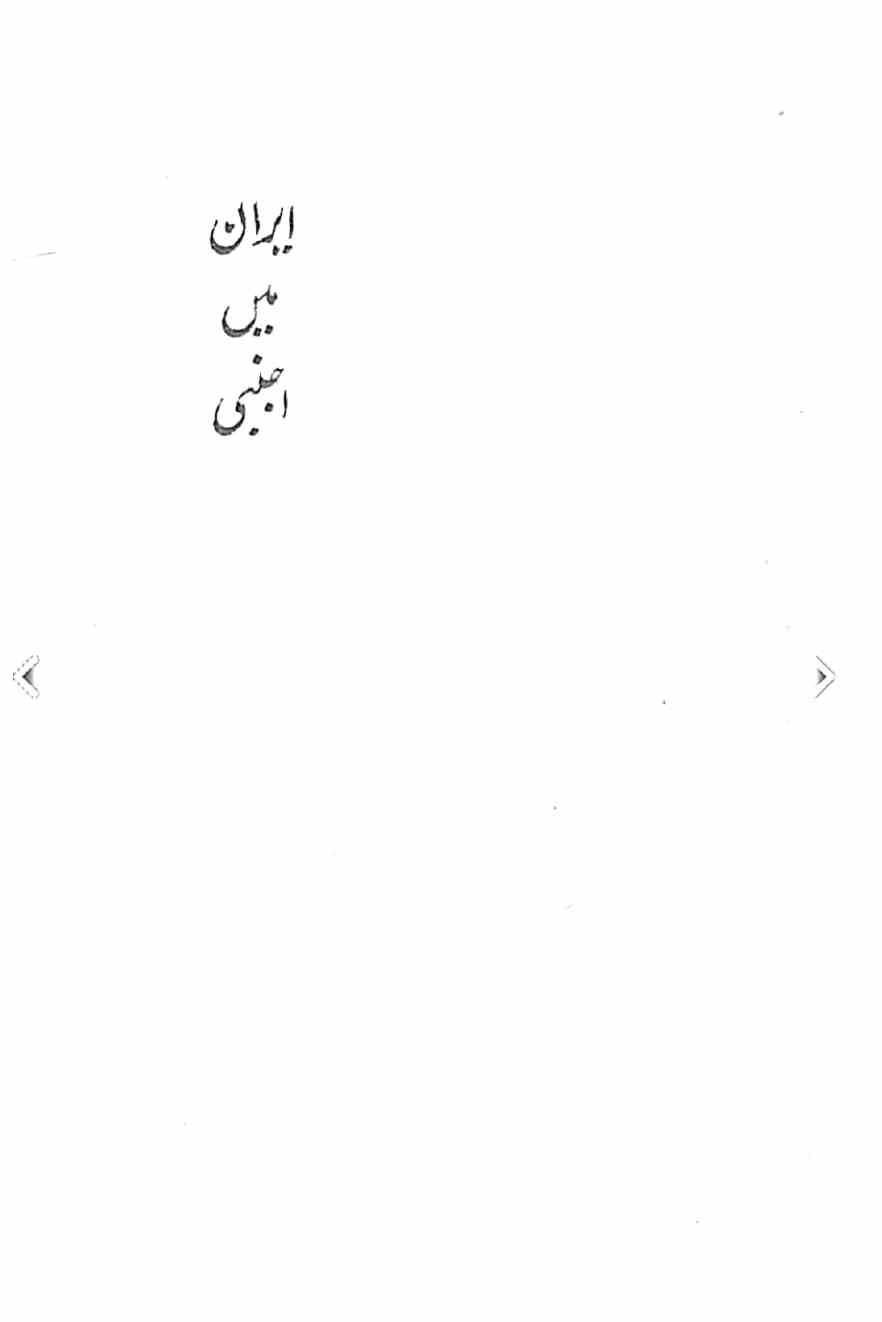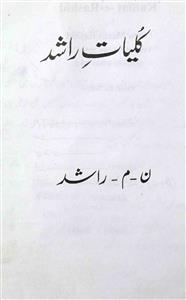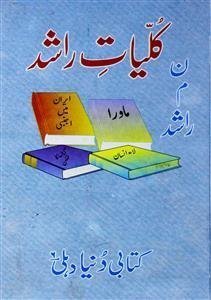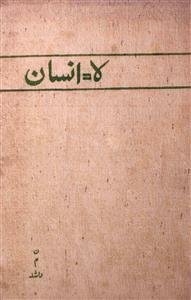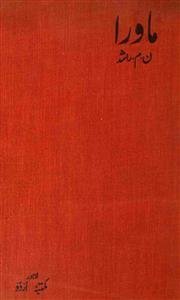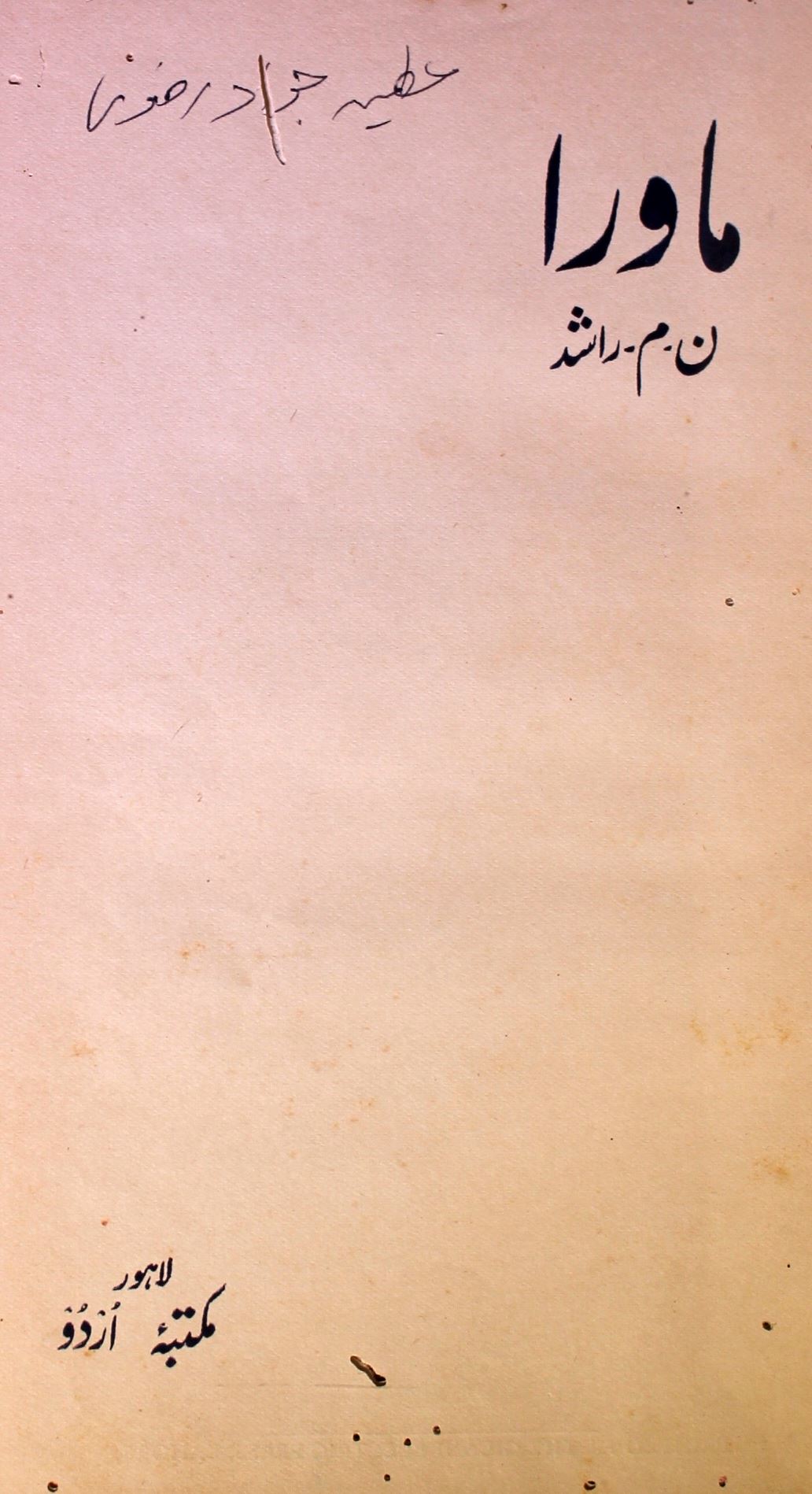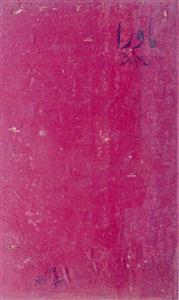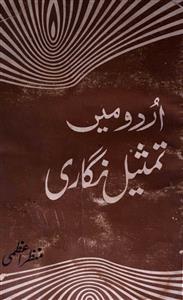 For any query/comment related to this ebook, please contact us at haidar.ali@rekhta.org
For any query/comment related to this ebook, please contact us at haidar.ali@rekhta.org
About The Book
آزاد نظم کو ایک نیا اسلوب ، نیا لہجہ اور نئی ہیئت عطا کرنے والوں میں ن۔ م ۔ راشد کا نام سر فہرست ہے۔ ان کا مطالعہ اور مشاہدہ بہت وسیع تھا۔زیر تبصرہ کتاب "لا انسان" ،ن م راشد کا تیسرا شعری مجموعہ ہے جو کہ 1969 میں منظر عام پر آیا، راشد کے اپنے منفرد اسلوب کا اعلان لا۔ انسان کی نظمیں بین الاقوامی انسان کے انتشار اور امیدِ نو کی عکاس ہیں۔ راشد انسان کو ایک ایسا ہندسہ تصور کرتے ہیں جس کی قیمت معلوم نہیں ۔ زندگی میں تلاش کا عمل اسی قیمت کو معلوم کرنے کی تگ ودو ہے۔اس تگ و دو کا محرک عشق ہے۔ عشق کے مختلف رنگ کبھی انسانیت سے ، کبھی فطرت سے ، کبھی فن سے ،کبھی ذات سے اور کبھی جنسِ مقابل سے عشق کی صورت میں اپنا جلوہ دکھاتے ہیں۔ زندگی کی عظمت اور معنویت اسی جذبہ کی بدولت ہے۔ مجموعہ کے شروع میں راشد کے ساتھ ایک طویل مکالمہ شامل ہے جس سے ان کے فکر و فن پر روشنی پڑتی ہے۔
About The Author
N.M. Rashid is a poet who not only expressed the spirit of his time but also created a new consciousness in the new generation and set new standards on a creative level. His name is at the forefront of popularizing independent poetry. Deviating from the tradition, Rashid laid the foundation of a new style in Urdu poetry. He is one of the few Urdu poets whose poetry is neither merely poetry of language nor mere poetry of conditions. His poetry was of thought and wisdom. He thinks himself and persuades others to think too. And the scope of his thinking is very wide, cosmic and universal. Breaking down religious, geographical, linguistic and other boundaries, he recites the eulogy of a universal human being who is a new ideal human being whom he calls the "Adam-e-Nau" or the new man. He is a human being with complete harmony in appearance and inwardness. Rashid's poetic temperament is similar to that of poets like Rumi, Iqbal, Dante and Milton who do not fall below a certain level because the issues and themes they deal with are different from the general issues and conditions that diversity elasticity and flexibility in lyrical poetry. It takes an intellectual temperament to enjoy his poetry and in that sense he is a poet of qualities, not of the people.
NM Rashid was born on August 1, 1910 in a prosperous family in the town of Akalgarh (now Alipur Chat) in Gujranwala District of Pakistan. His father's name was Raja Fazal Elahi Chishti who was the District Inspector of Schools. He passed his matriculation examination from the Government School of India in 1926. Poetry was popular at his home. His grandfather, who was a doctor by profession and a civil/military surgeon, used to recite poetry in Urdu and Persian. His father was also fond of poetry. At the age of seven or eight, he wrote his first poem, "Inspector aur Makhiyan." he poem depicts an inspector who had come to inspect his school and was attacked by a swarm of bees on his head and was slapping his head, back and cheeks to remove them. For this poem, his father gave him a reward of one rupee. His grandfather was also happy but also urged him to stay away from poetry. In the beginning, Rashid also wrote some hymns and naats which were published in anonymous magazines. It was Rashid’s father who passed on his distinguished taste of poetry to his son, opening him to a world of works by Hafiz, Saadi, Ghalib and Iqbal. That’s how Rashid became acquainted with the words of great Urdu and Persian poets. Rashid was also influenced by English poets during his school days and he translated some of Milton, Wordsworth and Long Fellow's poems and was awarded prizes for reading at school literary festivals.
In 1926, Rashid enrolled for higher studies at Government College, Lyallpur, where his subjects were English literature, history, Persian and Urdu. There, he was made the student editor of the college magazine "Bacon" considering his poetic taste. During this time he wrote many articles in English. Even in his youth he was very fastidious. A magazine Zamindara Gazette was published from Lyallpur, the editor of which was his friend. At his request, he took over the editorship of this magazine. He wrote many articles on village-life improvement. He started participating in college poetry readings and was made the editor of the Urdu section of the college's magazine "Ravi". Many poems and humorous articles were published. Soon these works started appearing in standard magazines like "Nigar" and "Humayun". In 1930, Rashid decided to pursue an MA in Economics after passing his BA. He also got a certificate equivalent to secondary by attending French night classes. He also tried his luck in civil services but failed. In the same period, he also passed the examination of Munshi Fazil. During this period, his articles were "The Effect of Ghalib on Urdu Poetry", "Zafar Ali Khan's Poetry", And "Imtiaz Ali Taj's play Anar Kali" etc. were published. In this he had the guidance of Dr. Din Mohammad Taseer. After doing his MA, he lived with his father in different places and spent a lot of time in Sheikhupura and Multan. In 1934, he edited Tajur Najibabadi's magazine "Shah-kar" but a year parted way. He worked as a clerk in the office of the commissioner of Multan. At the same time, he wrote his first independent poem, ‘Jur’at-e-Parvaz’. But the Nazm which was published in the literary magazine Adabi Duniya, and stirred many a reader was ‘Ittifaqat’. In 1935, he married his cousin who was his maternal uncle’s daughter.
In May 1939, he was appointed as the News Editor of All India Radio and in the same year he was made Program Assistant and then promoted to the post of Director of Programs. In 1941, he was transferred to Delhi. He was also clever and opportunistic and knew how to get things done with the people around him. On Delhi Radio, he was involved in the Punjabi lobby that led to the dismissal of naive poets like Majaz and Akhtar-ul-Iman. Thanks to his own tactics, he got a temporary commission in the army in 1942 and went overseas. From 1943 to 1947, he lived in Iraq, Iran, Egypt, Ceylon (Sri Lanka), etc. under the Directorate of Inter-Services Public Relations, India. At the end of his military service, he returned to All India Radio. He was made the Regional Director of Lucknow Station. After the partition of the country, he was assigned to the same post at Radio Pakistan Peshawar. He spent one year in Peshawar and one and a half years in Lahore. Then in 1949 he was appointed Director Public Relations at Radio Pakistan Headquarters Karachi. He served as the Regional Director of Peshawar Station from 1950 to 1951. He joined the United Nations in 1952 and continued to work in the United Nations Information Department in New York, Jakarta, Karachi and Tehran in 1961. After his wife's death, he remarried in 1963. She Apart from poetry, Rashid's other hobbies were horse riding, chess, and wrestling. His drinking was sometimes less and sometimes more until the result of a heart condition. Doctors did not strictly forbid him, and he rarely participated in poetry recitals. Rashid died of a heart attack in 1975 in the English town of Cheltenham and was not buried anywhere as his body was, according to his alleged will, was to be cremated. There was a great deal of resentment in Pakistan over this matter and not even regular condolence meetings were held.
Four poetry collections of Rashid have come to the fore, these are, Maa-varaa (1942), Iran Mein Ajnabi (1955), Laa-Insan (1969), and Guman Ka Mumkin (1977). During his stay in Iran, he studied the works of over 80 modern Persian poets and compiled his findings in his book ‘Jadid Farsi Shayari’. Many of his critical essays were published in various journals which have not been published in book form. He also never associated with the literary movement Halqa-e-Arbab-e-Zauq.
NM Rashid has never been a popular poet like Faiz or Majaz. The reason is that the combination of different components in Rashid's poetry is a continuous process of action, reaction and harmony of intellectual and emotional tendencies which takes effort and hard work to absorb. Rashid's poetry is not something to be understood or immediately aroused. His poetry, like all good and great poetry, demands a separate critique for itself, which itself is enlightened by its study, understanding and appreciation.
 For any query/comment related to this ebook, please contact us at haidar.ali@rekhta.org
For any query/comment related to this ebook, please contact us at haidar.ali@rekhta.org
